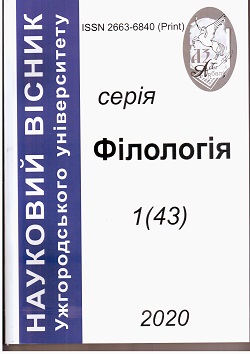VOCABULARY FLEXIBILITY AND DEVELOPMENT PROMOTED BY COVID-19 PANDEMIC
DOI:
https://doi.org/10.24144/2663-6840.2020.1.(43).152-158Ключові слова:
coronavirus, naming, vocabulary flexibility, media, word-building process.Анотація
The ongoing coronavirus outbreak and pandemic have dramatically changed the worldwide life landscape in many respects, and, in particular, the language situation, which has revealed that at their present stage of development, language systems and their vocabularies are much more dynamic than they used to be. It is especially evident in English since it is used around the globe for international communication. The virtual global hypertext, as the totality of the existing texts, is currently overloaded with the virus-related existing and new vocabulary. The thing is that even the existing lexis is being frequently used in a misleading way to confuse or scare the audience. Therefore, it is relevant and worth studying those rapid lexical and semantic changes that have been occurring over the past several months in relation to the description of the novel coronavirus phenomenon in question. The study aimed at analysing the rapid processes developing in the English vocabulary due to the coronavirus pandemic as an extralinguistic factor. The empirical material included English-language media texts of the early 2020. It appears that the new virus naming was an evolutionary process that included a number of versions that finally resulted in the generally accepted formal name of Corona Virus Disease 2019, or its generally accepted shortened and thus economical form Covid-19/COVID-19. In total, 21 options of nomination in question were found. The virus spread effect naming has also developed diachronically, from a local outbreak to pandemic and infodemic. During the short period of functioning in the language, the coronavirus and its consequential disease names have already built their word families, including numerous short-lived occasionalisms. Moreover, there have emerged various collocations that include the coronavirus name as their structural element, as well as other lexical units related to the new life situation globally. It is to be noted that the present research cannot be considered holistic since the novel coronavirus pandemic is still ongoing and, accordingly, vocabulary changes continue, which will require further analytical consideration and conclusions.##submission.downloads##
Опубліковано
2020-12-19
Номер
Розділ
Мовознавство

